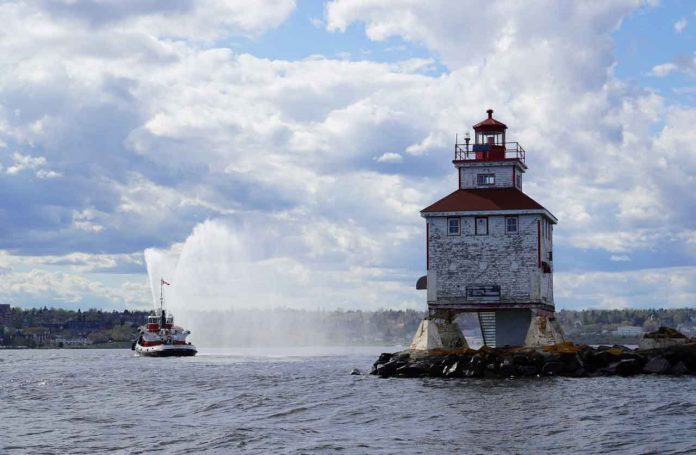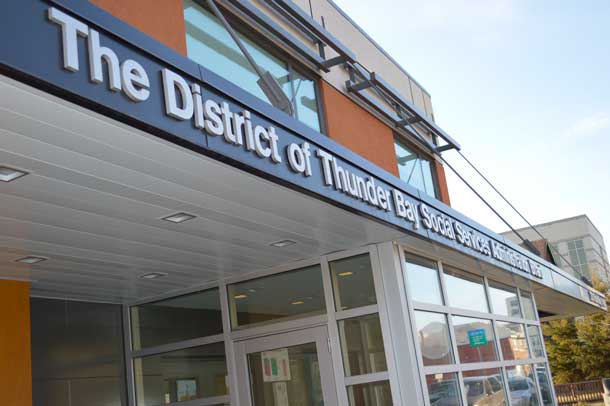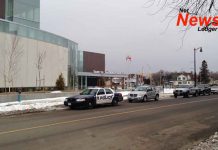By Jon Thompson
THUNDER BAY – NEWS – Speaking at a local services board meeting on homelessness last week, Thunder Bay Mayor Ken Boshcoff suggested that criminal militias funded by international illicit drug cartels are abducting local children and using shipping channels to traffic them worldwide.
His comments touch on an issue local police and city officials have always denied when allegations have arisen: that particularly Indigenous women were being trafficked into sexual slavery through Lake Superior’s shipping ports for decades.
“I’m not really sure how we should be phrasing this to the public, but this is a worldwide pandemic. It’s basically international warfare, the scale of it,” Boshcoff told the Thunder Bay District Social Services Administration Board on March 20.
“The scale of the military that protects the drug dealers is at an international level. So we’re dealing with something that isn’t a ward issue. It’s not just a parquette that has some campers. It’s vessels coming in here, taking kids down the river across to Europe.”
Boshcoff made the statement as the TBDSSAB received the final report on its 2014-2024 homelessness strategy. Staff is currently operating without a homelessness strategy, saying the provincial government has yet to issue priority directions.
“The scale of the military that protects the drug dealers is at an international level… It’s vessels coming in here, taking kids down the river across to Europe.”
In 2013, University of Minnesota masters student Christine Stark and the Ontario Native Women’s Association rang the alarm about human trafficking in Duluth, Minnesota, particularly involving Indigenous women from both sides of the Canada-U.S. border.
Stark’s research stemmed from a 2007 survey conducted by the Minnesota Indian Women’s Sexual Assault Coalition, which concluded that “women get brought out onto the boats and never come back.” Her further anecdotal work with victims led her to conclude trafficking that included children and babies.
Anishinaabe woman Bridget Perrier, who was sexually trafficked in Thunder Bay when she was a child, spoke publicly about her experiences in port. Those included detailed descriptions of brigs and memories of death threats. Perrier claimed local sex workers told her it was still happening. Both Thunder Bay and Duluth police denied it in the media.
“First Nations girls are targeted and that’s my biggest concern is that there are bull’s eyes put on them and no one is doing anything,” she told CBC in 2013.
Perrier told Canadaland in 2018 that she was trafficked through the shipping port at the age of 12. She said a ship captain had promised her he’d take her shopping in Duluth but she stepped away, afraid she might be thrown into Lake Superior if she fell out of the sailors’ favour.
“The one woman, she had been sexually assaulted,” Perrier said. “I went up and told Captain Jack, I convinced him to let her off in port. When we got to Duluth, I told them I’m going to be right back. I’m going to wash my clothes and all that. I’m going to drop her off, send her on a bus back to Canada. He had given me my money prior and I just took off. I dropped her at the hospital and I got a ride back to Thunder Bay.”
During a local Missing and Murdered Indigenous Women and Girls Inquiry pre-consultation meeting in 2016, multiple families reported a loved one having disappeared on a ship.
Boshcoff is currently one of five members on the Thunder Bay Police Service Board. While Thunder Bay Police Service spokesperson Matt Vis said local police, “acknowledges human trafficking is a serious concern,” he added local law enforcement, “has not received reports of individuals locally being victimized by human trafficking where they were sent overseas.”
“Women get brought out onto the boats and never come back.”
Stephanie Reid, who is the acting supervisor of corporate communications for the City of Thunder Bay, said Boshcoff intended his comments as global generalizations that drew connections between a number of social issues.
“The mayor’s comments were not specific to our community but intended to illustrate the seriousness and scale of homelessness, substance use and human trafficking around the globe, and to emphasize the complexity of the efforts required of all communities to address these issues.”
In June, Boshcoff apologized for suggesting “hundreds of thousands” of homeless people were descending on the city of 110,000 people for free drugs and sleeping bags. In a statement issued by the city, he conceded those statements were “misinformed and incorrect.”
Representatives of the Thunder Bay Coalition to End Human Trafficking, the Ontario Native Women’s Association, and Nishnawbe Aski Nation all issued no comment.
Jon Thompson is a Local Journalism Initiative Reporter based in Thunder Bay. He works for Ricochet News and this story was originally published on March 25 2025.







